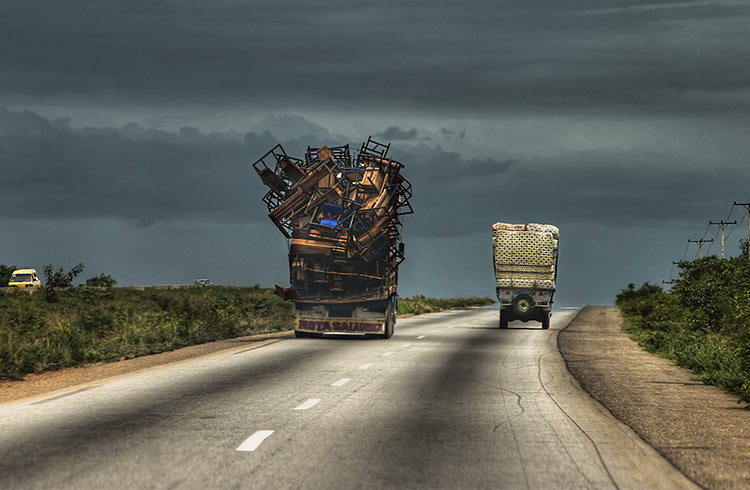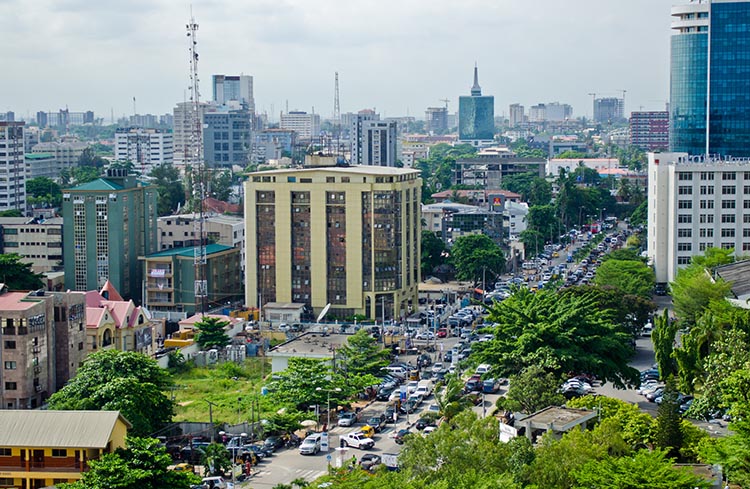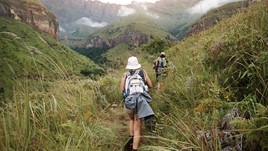Is it Safe to Travel to Nigeria? 6 Essential Safety Tips
Nigeria is unsafe for travel due to a high level of crime. Here are six important things you should know about the dangers of traveling here.
 Photo © Getty Images/Irene Becker Photography
Photo © Getty Images/Irene Becker Photography
Nigeria is not the safest place to travel in Africa, however there are a number of things you can do to avoid trouble and exercise extra personal safety.
There are government warnings that are in place for terrorism risks, kidnapping and other violent crime. For the latest information, read your government's travel advisory, and follow their advice.
- Petty crime
- Nigerian scams
- Civil unrest in Nigeria
- Terrorism
- Lagos: high-risk
- Kidnapping and robberies
Petty crime
The political and economic instability of Nigeria opens the doors for crime, from basic theft and pick pocketing to armed robberies, muggings, abductions, and car-jackings. Robbery and kidnapping is most prevelant in the southern part of the country, while terrorist threats tend to be concentrated in the north.
Thieves usually take advantage of tourists, so keep the amount of cash on you at all times low, and avoid carrying your credit card. There is a high amount of credit card fraud throughout Nigeria, which is part of the reason most businesses do not take this form of payment.
Nigerian scams
Online money scams and fake Nigerian marriages are other criminal activities often directed at foreign travelers. Many of these crimes are initiated via email, and any suspicious messages should be reported to authorities. Fake ebony is also a highly pedaled souvenir item in Nigeria.
Shady characters often roam the airport looking for a gullible person to defraud or rob. Reports suggest these people often pose as taxi drivers.
While at the airport be aware that some customs officials might not be on the right side of the law. If you think something feels suspicious, that could be the case. Try to seek help from management if you are unsure.

Civil unrest in Nigeria
In September 2019, riots in South Africa spilled over into Nigeria, where people responded by attacking South African-owned shops. The South African embassy in Nigeria was closed due to threats. If you are traveling to Nigeria, here are a few tips on what to do if you are traveling in a country experiencing civil unrest.
Terrorism in Nigeria
Terrorist attacks can happen anywhere in Nigeria, and there are multiple terrorist groups operating across the country.
Terrorist groups include The Movement for the Emancipation of the Niger Delta (MEND), al Qaeda-linked terrorist group Ansaru (Jamaat al Ansar al Muslimeen fi Bilad al Sudan), Boko Haram and Islamic State West Africa (ISWA).
MEND is the group focused on oil and aims to take control of this and other natural resources, such as gas, in the country, particularly the region of the Niger Delta.
The UK Government advisory states that, "Most attacks take place in northern and north east Nigeria", however, there have been a significant number of attacks elsewhere. Travelers should pay attention to their surroundings at all times, and stay alert. Follow local news reports, and during periods of civil unrest, avoid crowded places or large gatherings.
No-go zones
Several Nigerian provinces are considered no-go areas due to terrorist and criminal activities and attacks.
The British and US Government travel advisories both caution against travel to Borno, Yobe State and Northern Adamawa State due to a high risk of terror attacks.
Other areas to avoid include Adamawa, Bauchi, Gombe, Kaduna, and Kano state, the coastal areas of Akwa Ibom, Bayelsa, Cross Rivers, Delta, and Rivers states (with the exception of Port Harcourt).
Exercise extreme caution while traveling anywhere in the country.
Crime in Lagos
Lagos is considered a high-risk area for travelers, and you should be cautious on the streets and while driving. Avoid walking around at night alone, even if in a group, as nighttime can pose the greatest risks to locals and tourists alike, and most attacks happen after 10pm.
Kidnapping and robberies
The states of Anambra – especially the Enugu-Awka-Onitsha expressway – Kogi, Abia, and Edo are hotspots for robberies and kidnappings. Victims should immediately give in to the demands of a theif to avoid injury. Road travel should also be limited in these areas, especially outside cities. Anyone who needs to travel in these locations should do so in convoy during the day.
Related articles
Simple and flexible travel insurance
You can buy at home or while traveling, and claim online from anywhere in the world. With 150+ adventure activities covered and 24/7 emergency assistance.
Get a quote
No Comments